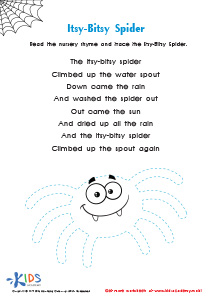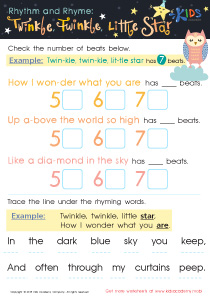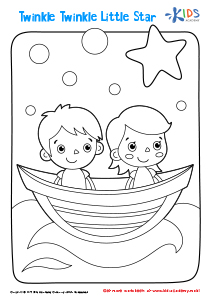Nursery Rhymes Worksheets for Ages 7-9
5 filtered results
-
From - To
Discover our engaging Nursery Rhymes Worksheets, carefully designed for children ages 7-9. Our collection promotes reading fluency, comprehension, and critical thinking. Each worksheet revisits beloved nursery rhymes, paired with activities that challenge students to enhance their literacy skills. From fun vocabulary exercises to creative writing prompts, these pages are crafted to keep young minds excited and engaged. Perfect for classroom use or at-home learning, our nursery rhymes worksheets provide a delightful blend of education and entertainment, helping children develop crucial language arts abilities in a fun and interactive way. Explore and download your free printables today!
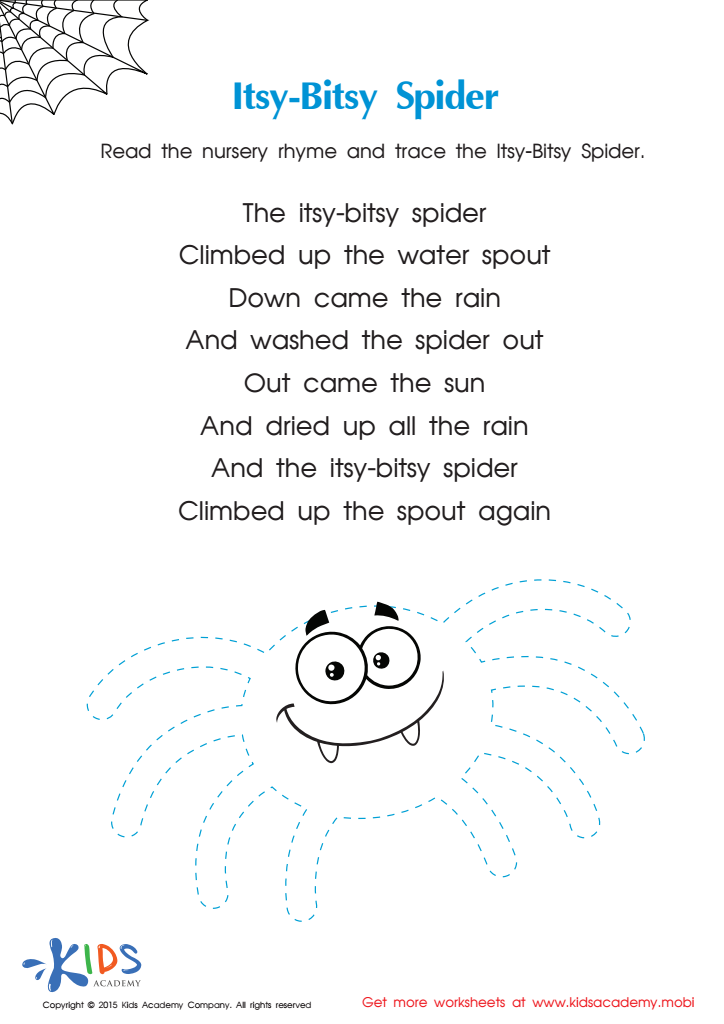

Itsy Bitsy Spider Nursery Rhyme PDF Worksheet
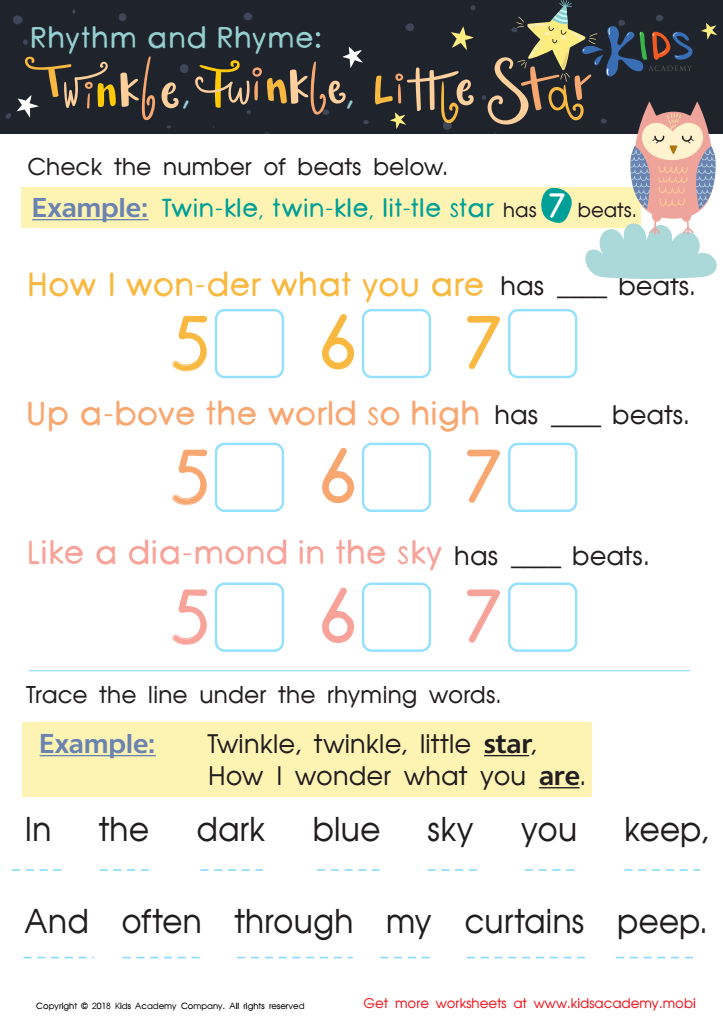

Rhythm and Rhyme: Twinkle, Twinkle, Little Star Worksheet


The Five Little Monkeys Nursery Rhyme Worksheet
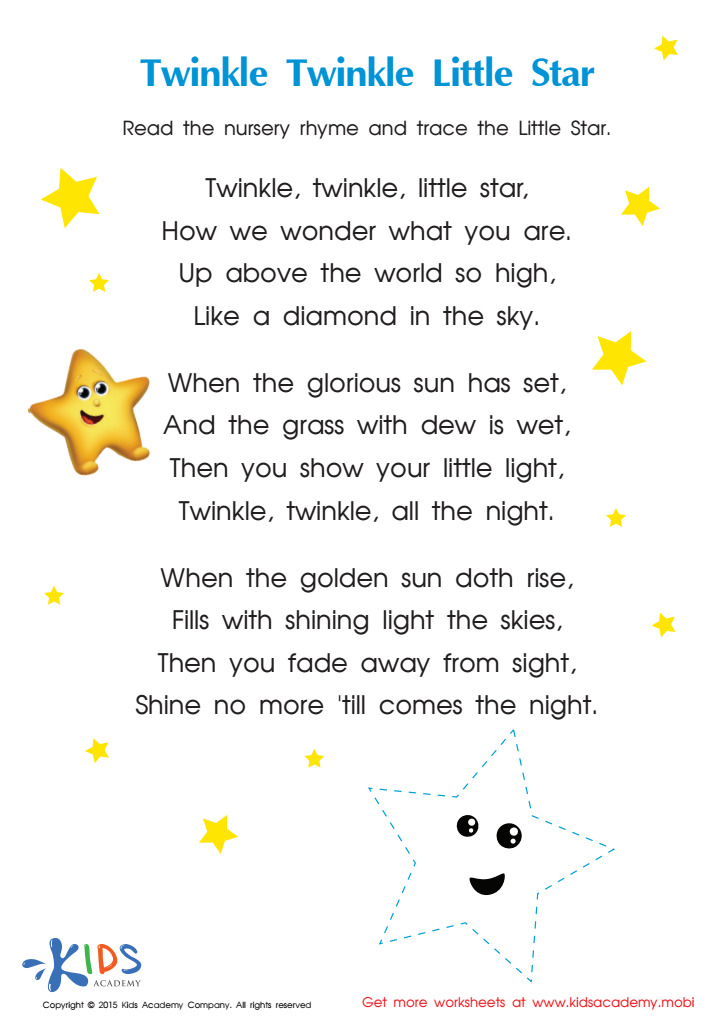

Nursery Rhymes: Twinkle Little Star Worksheet
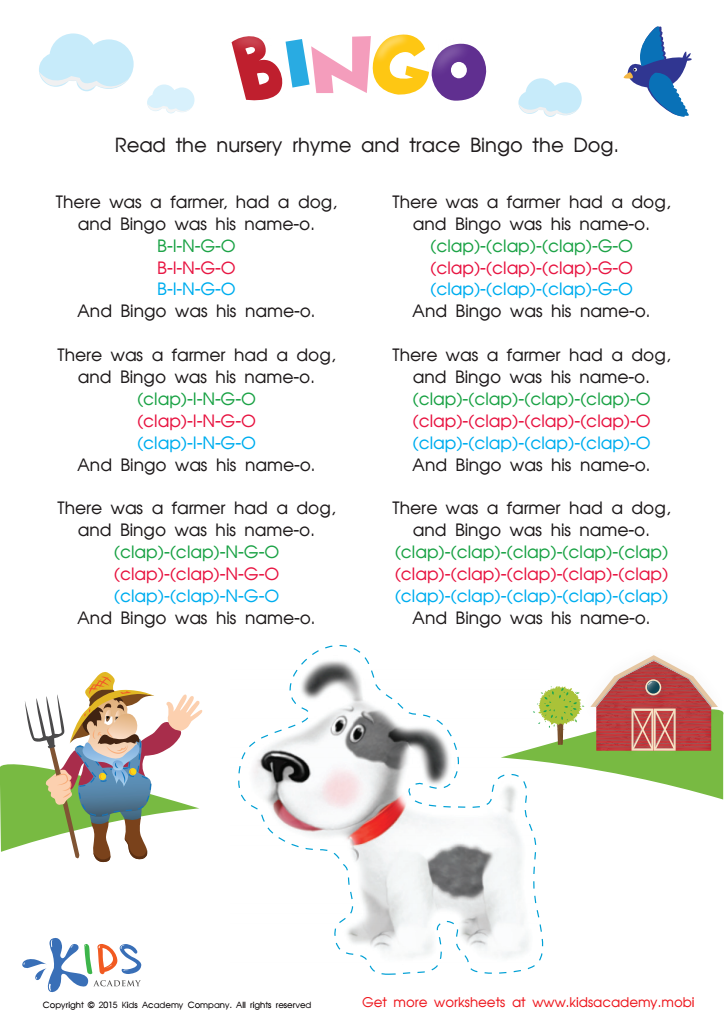

Nursery Rhymes: The Bingo Song Worksheet
Parents and teachers should care about nursery rhymes for children aged 7-9 because these timeless short verses support linguistic, cognitive, and social development in young learners. Nursery rhymes enhance phonemic awareness, a critical skill for reading proficiency, by emphasizing rhyme, rhythm, and repetition. This builds a child’s ability to discern sound patterns and syllables in words, laying a foundation for successful reading skills.
Furthermore, rhymes engage children's imaginations and creativity, encouraging them to visualize and dramatize storylines, which aids in comprehension and expressive language. These activities propel cognitive growth as children think critically and predict story outcomes or create new scenarios inspired by familiar verses.
In terms of social development, nursery rhymes promote socialization and bonding. Reciting or singing rhymes together nurtures a communal learning environment where children feel more confident and connected to peers. They also often reflect cultural heritage and traditions, providing a platform for creating a sense of identity and belonging.
Integrating nursery rhymes into the curriculum adds an element of fun and play to learning, ensuring that children remain engaged, happy, and curious learners. These interactive and joyous experiences positively affect their attitude towards education, making a long-lasting impact on their academic journey.

 Assign to the classroom
Assign to the classroom






